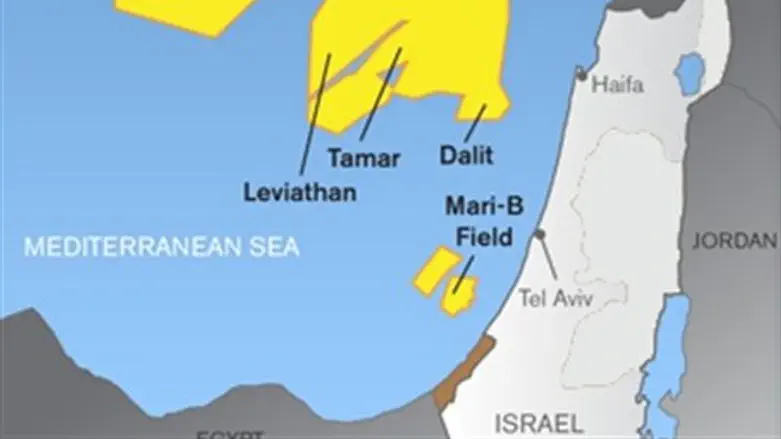
Lebanon complained again to the UN on Monday that Israel’s setting a maritime border in the resource-rich triangle between Israel, Lebanon, and Cyprus threatens peace and security in the region.
The move comes as Lebanon rotates into its September presidency of the Security Council at the world body, giving it the power to raise the issue for discussion.
Israel’s cabinet on July 10 approved the demarcation of the northern maritime border with Lebanon, in an effort to protect economic rights in offshore territories that Lebanon is claiming as its own. Israel submitted its map to the UN to counter a map that Lebanon submitted last year.
The area of the Mediterranean Sea in question is close to an area where US and Israeli firms have discovered two massive natural gas fields.
"Foreign Minister Adnan Mansour has sent a letter to UN Secretary General Ban Ki-moon rejecting geographic coordinates Israel submitted to the United Nations concerning the northern part of the waters it claims," a Lebanese statement said.
The statement added that Israel's claim infringes on Lebanon's Exclusive Economic Zone, a sea zone that would give Beirut the right to search the area for natural resources.
"This is a clear violation of Lebanon's rights... over an area of some 860 square kilometers, and puts international peace and security at risk," it said, adding, "We urge the secretary general to take all necessary measures to avoid conflict."
However, the map Israel submitted to the United Nations is nearly identical to the temporary international boundary – The Blue Line – set by the United Nations when Israel withdrew from Lebanon, while the map Beirut’s submitted previously differs substantially, establishing the maritime boundary well-south of the Blue Line.
The Daily Star quoted the head of Lebanon's Public Works, Transport, Energy and Water Committee, Muhammad Qabbain saying that after an official complaint has been lodged "even if Israel does not abide by the UN resolution, large international [excavating and offshore drilling] companies will no more be able to operate in an area dubbed as disputed by the UN.”
But Israeli officials say Lebanese threats to take the issue to the Security Council are merely a “smokescreen” to camouflage the fact that Lebanon violated international maritime line by unilaterally demarcating the border last year.
According to the official, borders cannot be demarked unilaterally, but rather must be agreed upon by both countries, or – if they can’t agree – must be sent to an arbitrator that both sides agree upon. Since Lebanon has refused to do either its unilateral boundary has no basis in law.
Once Lebanon did set such a boundary, officials say, Israel had no choice but to do the same in order to protect its interests.
Hizbullah, the force behind the Mikati government in Beirut, previously said it will ‘enforce Lebanon’s rights’ by force if need be. The move prompted Israel to deploy UAV’s to observe and protect Israeli economic interests in the region.